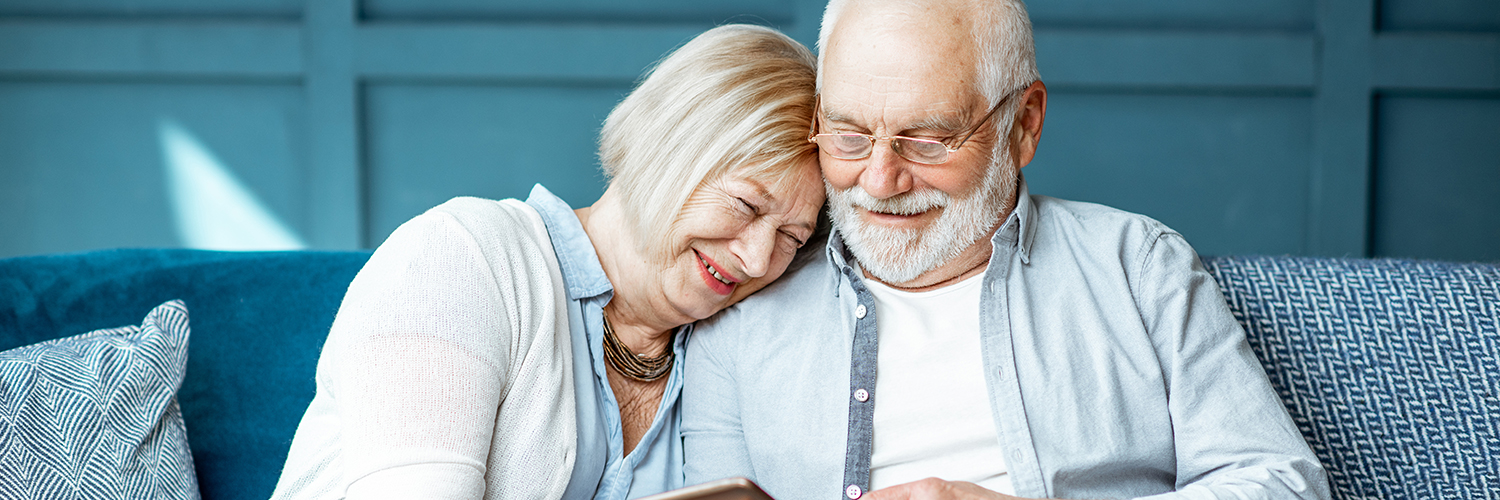COVID-19 & YOUR HEART
COVID-19 has added another layer of worry, leaving many people with heart disease and other conditions on even higher alert than usual to stay healthy.
Experts are continuing to learn how COVID-19 affects the heart and blood vessels during the initial infection while someone is sick. But attention also has turned to understanding how COVID affects heart health over the long term (sometimes called long COVID).
Up to 3 out of 10 adults who have had COVID report new, returning, or persistent symptoms with long COVID. Also, research suggests that after COVID, you’re at higher risk for heart issues – for example, blood clots, inflammation, irregular heartbeats (also called arrhythmias) heart attack, and heart failure. These issues can start even one year later.
While conditions regarding COVID are better, it’s still important to take steps to protect yourself and others, especially as new variants emerge or COVID-19 cases spike in your community. Be sure to stay up to date with recommended COVID-19 vaccines and boosters. These vaccines are safe and effective. They work by teaching the immune system to recognize and fight the virus that causes COVID-19.
Use this resource to find information about COVID-19 and tips to keep yourself and others healthy.
COVID-19 is caused by the SARS-CoV-2 virus. First discovered in 2019, the new coronavirus quickly spread around the world.
Although it’s part of the same family of viruses that cause the common cold, the virus that causes COVID-19 behaves differently.
As with other respiratory illnesses, COVID-19 infection can cause lung damage and breathing problems. But it also attacks other parts of the body, including the heart and blood vessels. It also seems to trigger inflammation and blood clots in some people. Because it had never been seen in humans before, at first no one had existing immunity to it (that is, an ability to naturally fight it). Today, over half of Americans have had COVID-19 at some point, according to estimates. Vaccination has helped protect communities, too.
But we are still learning about the virus. For example:
- Why some people get very ill, while others only have mild symptoms or none at all
- What the long-term health and heart effects might be
- When protection wanes after someone has had COVID, is vaccinated and boosted or both
- What new variants will emerge and how they will change how fast the virus spreads or the severity of illness
It’s important to pay attention to COVID-19 cases in your community and take steps to protect yourself and others.
If you’ve had COVID-19 and still feel unwell or have ongoing symptoms, you could have ”long COVID.” It is formally known as post-acute sequelae of SARS CoV-2 infection (PASC). You might also hear it called long-haul COVID, post-acute COVID-19, or chronic COVID.
Long COVID includes a wide range of new, returning or ongoing health problems that last for weeks or months after infection. We are still learning about the long-term effects of COVID, including its impact on preexisting heart disease. In general, it seems long COVID can:
- Affect anyone who’s had COVID, even if it was a mild case or one without symptoms
- Develop weeks after COVID or even 3-6 months later
- Be a source of worry, especially given how little we still know about what COVID can do to the body over time, and sometimes lessen what someone is able to do at work or home
Some common heart-related symptoms post-COVID include:
|
|
Having had COVID is an important part of your health history moving forward – even if you didn’t get that sick from it. So be sure to tell your care team about any COVID infections and if you have lingering symptoms.
What You Can Do
It might also be helpful to:
- Write down and talk with your care team about your experience with COVID. For example:
- When you were vaccinated and boosted
- When you got COVID and how sick you were
- What treatments you were given for COVID, if any, and how you’ve been feeling since
- Any ongoing or new symptoms that have been especially bothersome or worrying, and how these are affecting your usual activities
- If you’ve seen any other doctors for these issues or if any tests have been done
- Keep a log of ongoing or new symptoms, when they occur, for how long they’ve been going on, and if anything seems to make them worse or better
- Talk about how you are coping – it can be upsetting and exhausting to try to connect the dots and understand why some health issues happen after COVID
- Ask about symptoms that might require urgent medical care and who you should contact
- Make sure you understand next steps after any appointments – for example, any blood work or imaging tests that are needed, what the results might mean, as well as any follow-up visits; in some cases you may be sent to another specialist or a long COVID clinic near you
In some ways, managing your heart condition during a pandemic stays the same. For example, just as you did before the COVID-19 outbreak, keep up with heart-healthy habits, manage stress and don’t stop any medications without talking with your care team.
You also will want to protect yourself and others by getting vaccinated against COVID-19 as soon as your are able. In addition, you might want to take advantage of telemedicine for virtual visits.
Also, it’s a good idea to have essential supplies, food and medications on hand. Of course, these recommendations may change over time depending on the rise and fall of COVID-19 in your area.
Keep reading this section to find more tips on how to stay heart strong and healthy during the COVID-19 pandemic.
Simply put: It is important to keep taking your medications as directed. The medicines you take for your heart and other health conditions such as blood clots, diabetes, kidney disease or depression, can help keep these conditions under control and prevent problems.
We are still learning about COVID-19, but there is no evidence right now that heart medications make you more likely to get COVID-19 or become seriously ill from it.
In fact, stopping your medications might cause more harm than catching COVID-19. Your medications help prevent heart attacks, dangerous heart rhythms, strokes, and other complications.
Stay on your medications unless told otherwise by your care team. And always remember to check with them before making any changes to your treatment.
VISUAL AIDS
COVID-19
COVID-19 Vaccine
Flu Vaccinations and CVD prevention
In Dr Salahaddin Ubaid I had a medical genius who also contributed significantly to aiding me overcome all of the negative worries and emotions I was feeling. The care he provided to me, his attention to detail, his personal knowledge, expertise, experience and skills was outstanding.
In life we all need role models, if I was in training to be a doctor you would certainly fit that role for me. I thank you so much for what you have done to allow me to continue with my fitness regime and wish you well in the life ahead of you.
A great team player, all of the nursing staff are very happy to work with Salahaddin as he is polite, efficient, and has a great aura of calmness and competence and appreciates the time to be light-hearted.
His presence radiates a warmth, he instils confidence in all those around him, he sets an example for others to follow and is a role model for others to aspire to be like. He was kind, courteous, professional, understanding, caring and highly approachable and relatable as well as the medical guru we all benefit from and rely on to give us our lives back.
Your kindness and good humour were very much appreciated and certainly put me at ease throughout the procedure, which on other ocassions has been quite daunting, your relaxed approach to my problem was very calm and professional.
What I valued as much as his erudition was his people skills, he related to everyone as an individual, his understanding, communications, interactions and personable nature were exceptional. Dr Ubaid was quite simply staggering, he is somebody that has had a significant impact on me, not just for giving me my life back and for his medical genius but for being the person that he is.
Dr Ubaid works well with all the staff. His approach to his fellow workers is both patient and respectful. His easy going manner makes him very approachable to ask advice and he accommodates any delays graciously. I personally look forward to working with him.






